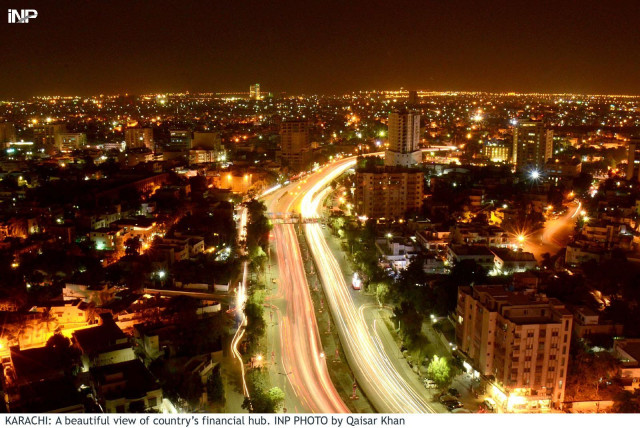After calling PTI’s agenda ambitious, PML-N says it will improve Pakistan’s ranking to 50th spot
Plan seems unrealistic as it will require massive governance and taxation reforms

For a nation facing structural, functional and systemic crises, economic delivery is crucial
PHOTO: INP
In the next three years, Pakistan’s ranking on the World Bank’s Ease of Doing Business Index would go up from the current low of 147 to 50, claimed Board of Investment (BOI) Secretary Sumaira Siddique, in presence of Finance Minister Dr Miftah Ismail, while talking to media on Wednesday.
PML-N to benefit as rifts emerge in PTI over party tickets
The target appears highly unrealistic as an improvement of 97 positions will require drastic governance, administrative and taxation reforms. The goal is also unrealistic because Prime Minister Shahid Khaqan Abbasi has not even found time to hold a meeting of the steering committee on the ease of doing business for the past three months.
Four more PML-N lawmakers join PTI
The committee’s meeting has been postponed several times since March 1, which has delayed action on certain outstanding inter-provincial issues whose resolution is critical for improving the country’s ranking.
On the Ease of Doing Business Index 2018, Bulgaria, Belgium and Croatia are currently occupying positions from 50 to 52 and pushing them will require real hard work.
PML-N not to allow even a minute's delay in polls: Sharif
The BOI secretary also underlined the need for increasing the investment-to-gross domestic product (GDP) ratio to 20% in three years and the current low level of foreign direct investment to $15 billion by 2025 as two other main priorities of the BOI.
The PTI on Sunday had unveiled its ambitious agenda, outlining the party’s commitments for the first 100 days of forming its government after 2018 general elections. One of the PTI’s goals is to make Pakistan business-friendly by improving its current ranking to 100 in five years.
Minister for Planning and Development Ahsan Iqbal on Tuesday described the PTI’s 100-day plan as an imaginary document, which had been copied from his Vision 2025. The Vision 2025 is also a failure as the PML-N could not meet all its targets set for the 2013-18 Five-Year Plan, which was prepared in light of the Vision 2025.
After the PML-N government came to power in June 2013, Pakistan’s ranking has consistently gone down from 105 in 2012 to 128 in 2015 and now it stands at 147.
According to the Ease of Doing Business indicators, after the ease of tax payments, Pakistan has performed worst in contract enforcement. The BOI has prepared a 100-day plan to improve Pakistan’s ranking on the World Bank index.
“Pakistan is one of the top reformers as it has introduced 75 reforms in the past few years, which are also confirmed by the World Bank,” said BOI Chairman Naeem Zamindar. However, in the past 15 years, it had implemented only 25 reforms, he said.
He voiced hope that Pakistan would soon be able to achieve its lost ranking by reclaiming the 100th place.
In line with its commitment to improving the investment climate in Pakistan, the government has been implementing an action plan, which was jointly framed by the BOI and Ministry of Finance with the assistance of the World Bank Group.
Improving Pakistan’s business climate was also one of the four core pillars of the International Monetary Fund’s three-year Extended Fund Facility. But no progress was made despite getting $6.2 billion under the facility.
“Irrespective of the fact which party comes to power, Pakistan will remain an important destination for foreign investment,” said Ismail.
He pointed out that all political parties unanimously supported the China-Pakistan Economic Corridor (CPEC), which guaranteed that the momentum of foreign investment would not be disrupted. Setting up nine prioritised Special Economic Zones is the most critical part of the second phase of CPEC. However, the central government and four provinces have not yet agreed on an incentive package to lure Chinese industries to these zones.
Published in The Express Tribune, May 24th, 2018.
Like Business on Facebook, follow @TribuneBiz on Twitter to stay informed and join in the conversation.



















COMMENTS
Comments are moderated and generally will be posted if they are on-topic and not abusive.
For more information, please see our Comments FAQ